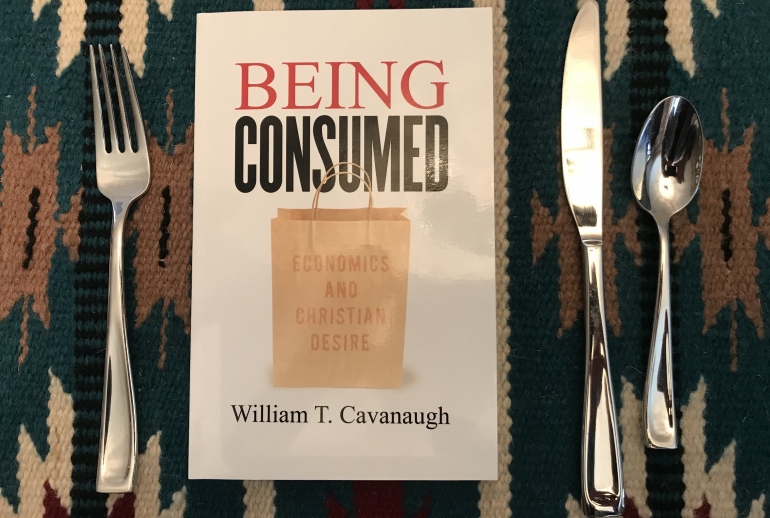With the absence of clear biblical teaching on biblical political stewardship, a number of regrettable religious movements or ideologies are circulating in American society and the church community. One of these that needs to be recognized and leaned against is “Christian Nationalism,” though it isn’t always identified by name. Some Christian nationalists don’t even recognize that’s what they are. They imagine that they are merely working to install Christian principles in our democracy when in fact they are working against democracy with a misguided understanding of the faith.
As Tim Keller makes clear in the article noted here, “A Book Review on the Topic of Christian Nationalism” (Life in the Gospel), the problem of Christian nationalism is more complex than may first appear. Which means we need to be discerning about who is a Christian nationalist, what exactly they believe, and why. In his essay, “Under God: How Christian is Christian nationalism?” (The New Yorker), Kelefa Sanneh agrees. “There is no canonical manifesto of Christian nationalism, and no single definition of it.”
Drawing on the sociological research of Andrew Whitehead and Samuel Perry (in the book Keller reviews), Keller and Sanneh note that the responses people give to six propositions identify those who, consciously or not, are Christian nationalists. Here are the six statements, as summarized by Sanneh—see how you would respond (yes or no) to each one:
Yes/No: The federal government should declare the United States a Christian nation.
Yes/No: The federal government should advocate Christian values.
Yes/No: The federal government should enforce strict separation of church and state.
Yes/No: The federal government should allow the display of religious symbols in public spaces.
Yes/No: The success of the United States is part of God’s plan.
Yes/No: The federal government should allow prayer in public schools.
“Respondents who answered more in the affirmative,” Sanneh says, “(or, in the case of the third proposition, the negative), were judged to be more supportive of Christian nationalism.”
Though it may not be obvious in every conversation on the topic, Keller points out Christian nationalism ends up promoting policies that should be anathema to the followers of Jesus. We can have pride in our country, speak truth to power, tell an accurate story about our history as a people, and be faithful in our political stewardship as followers of Jesus. And none of this requires Christian Nationalism.
Kelefa Sanneh concludes with a challenge and, for followers of Jesus, a word of hope:
The strangest thing about the debate over Christian nationalism is the assumption shared by many of the participants. The sociologists see a fearful tribe, resentful of a country that won’t stop changing. Exponents see a small but indomitable movement, standing strong against a tide of secularism. Miller [Georgetown political scientist, author of The Religion of American Greatness] sees an opportunity for Christians to play a constructive role in a changing country, preaching what their compatriots may no longer practice. But the underlying idea is that recent trends will continue: the churches will keep emptying out, and that Christianity will become an ever more tribal identity. The secular country that emerges might be increasingly free, anxious, and unpredictable—less prayer in schools, more shamans in the Capitol. Why should we assume, though, that these trends are irreversible, and that most of today’s Americans are beyond the reach of a message that has reached so many for so long? Earlier periods of secularization in America have given way to periods of Christian renewal. Is the next Christian revival just around the corner? It seems hard to believe—but, surely not impossible.
And that brings me to the third essay I recommend for reflection and discussion, a thoughtful essay by Tim Keller in The Atlantic about the possibility of a Christian revival in America. “Our society is secularizing,” Keller argues in “American Christianity is Due for a Revival,” “and Christianity seems to be in long-term decline. But renewal is possible.” () This essay is not merely a pastor’s hope that things might improve, but an argument that the gospel speaks to the failings of advanced modernity and that the Spirit is capable of reinvigorating Christ’s Church. But the fact of our world’s deep need is not, by itself, sufficient. For a true renewal to occur, Keller argues, three things need to be accomplished by at least a significant sector of the U.S. Church.
The escape from political captivity…
A union of “extraordinary prayer…”
The distinguishing of the gospel from moralism.
Considering his reasoning on the topic is a helpful exercise in Christian discernment. And a biblical antidote to the attractiveness of Christian nationalism.
Articles for discussion:
“A Book Review on the Topic of Christian Nationalism” by Timothy Keller in Life in the Gospel online.
“Under God: How Christian is Christian Nationalism?” by Kelefa Sanneh in The New Yorker (April 3, 2023, pp. 22-25). ()
“American Christianity is Due for a Revival” by Tim Keller in The Atlantic Monthly (February 5, 2023).
Photo credit: Book cover of another book on the topic worth reading, reflection, and discussion.



